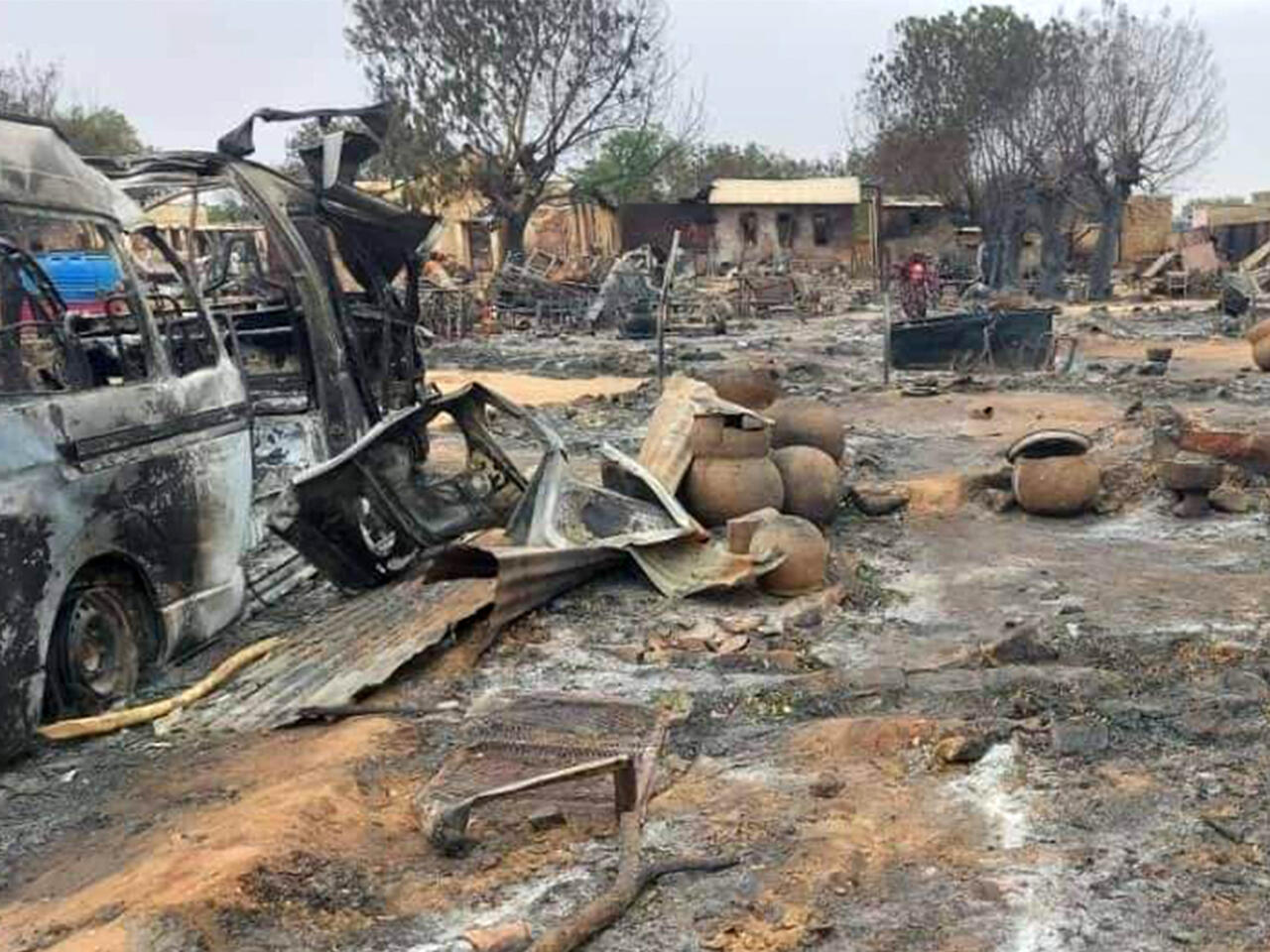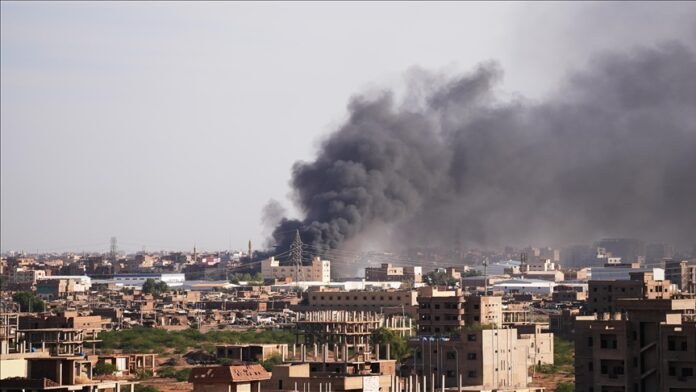At Least 75 Worshippers Killed During Dawn Prayers
A devastating drone strike carried out by Sudan’s paramilitary Rapid Support Forces (RSF) has killed at least 75 civilians at a mosque in North Darfur, according to local emergency workers and medical organizations. The attack took place on Friday during dawn prayers at the Al Jamia mosque, located inside the Abu Shouk displacement camp near El-Fasher.
The mosque collapsed entirely after being struck, trapping dozens of worshippers beneath the rubble. Rescue teams from the Abu Shouk Emergency Response Room confirmed that at least 75 bodies were recovered, while the Sudan Doctors Network reported a lower but still staggering death toll of 43. Both groups condemned the strike, describing it as a flagrant violation of international humanitarian law. Among the victims were displaced persons, women, children, and the elderly seeking safety in the camp.
One of the Deadliest Attacks in Recent Months

The incident marks one of the deadliest single attacks in Sudan’s ongoing civil war in recent months. Witnesses described scenes of horror, with survivors digging through debris to search for loved ones. The assault has been widely condemned as a “heinous crime,” underscoring the indiscriminate nature of RSF tactics as they intensify their offensive on North Darfur.
Strategic Push Toward El-Fasher
The drone strike coincides with the RSF’s broader military campaign to seize El-Fasher, the last state capital in Darfur still under the control of Sudan’s national army. For more than 18 months, RSF forces have maintained a siege around the city, constructing earth barriers and blocking critical humanitarian aid, including food and medical supplies, from reaching an estimated 260,000 civilians trapped inside.
Recent satellite imagery analyzed by Yale University’s Humanitarian Research Lab indicates that RSF fighters have likely taken control of the former United Nations–African Union Mission in Darfur (UNAMID) compound. The site previously served as a headquarters for army-aligned Joint Forces. This advancement positions both El-Fasher’s military headquarters and its airport within RSF firing range, escalating fears of a full-scale assault on the city.
UN Report Highlights Rising Civilian Death Toll

The strike came just as the United Nations Human Rights Office released a new report revealing a sharp rise in civilian casualties this year. Between January and June 2025 alone, 3,384 civilians were killed—already surpassing 80 percent of all civilian deaths reported in 2024. Most casualties, the report notes, were caused by artillery, airstrikes, and drone attacks on densely populated neighborhoods.
“Sudan’s conflict has become a forgotten war, but this report should bring the world’s attention back to the scale of suffering,” said UN Human Rights Chief Volker Turk. He warned that atrocity crimes, including possible war crimes, are being committed on a massive scale.
Humanitarian Catastrophe Deepens
The war, which erupted in April 2023 between Sudan’s Armed Forces and the RSF, has plunged the nation into a catastrophic humanitarian crisis. Tens of thousands of people have been killed since fighting began, and nearly 12 million have been displaced, making it the largest displacement crisis in the world. The United Nations estimates that 24.6 million Sudanese now face severe food insecurity, with many on the brink of famine.
Conditions inside besieged El-Fasher are described as dire. Civilians face chronic shortages of food, water, and medicine. Aid groups report that families are surviving on animal feed and foraged plants. Among those killed in Friday’s mosque attack was Dr. Omar Selik, a physician who had recently told international media about children being forced to eat animal fodder as supplies ran out.
International Outrage and Calls for Accountability
Human rights advocates and international observers have condemned the RSF’s actions, calling for accountability for crimes against civilians. Rights groups stress that targeting places of worship during prayer not only violates international humanitarian law but also constitutes an attack on the very social fabric of displaced communities already living under siege.
Despite growing international concern, global attention on Sudan’s war has remained limited compared to other conflicts. Analysts warn that unless urgent diplomatic efforts are renewed, El-Fasher could become the next epicenter of mass civilian casualties.
Conclusion
The deadly drone strike on the Abu Shouk camp mosque is a grim reminder of the escalating violence in Sudan’s Darfur region. As RSF forces tighten their grip around El-Fasher and civilian deaths mount, the humanitarian crisis shows no signs of abating. With millions displaced, widespread hunger, and indiscriminate attacks on civilians, the conflict is increasingly described by aid agencies as one of the world’s most neglected emergencies.

